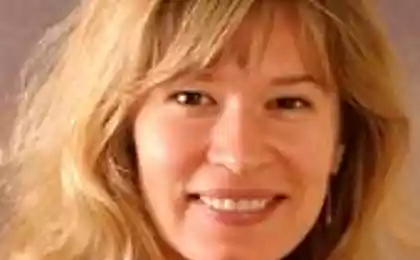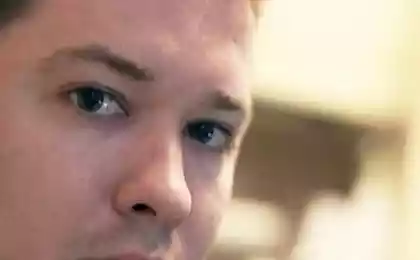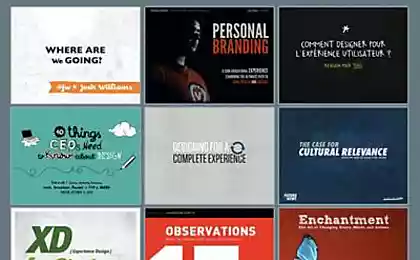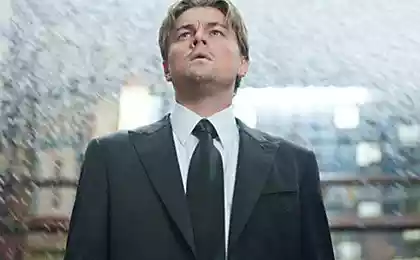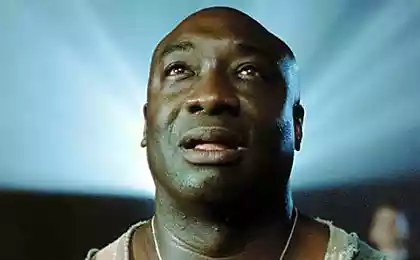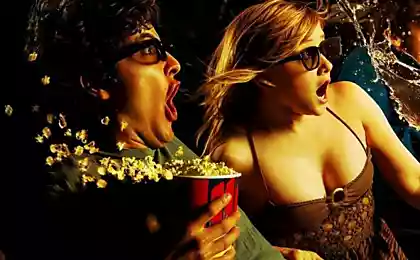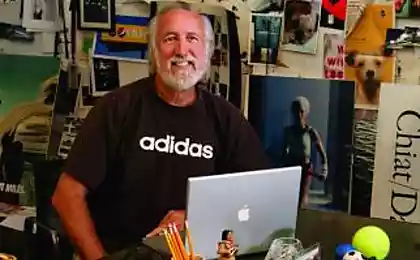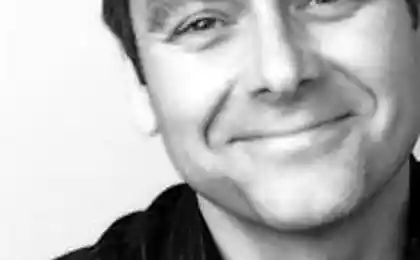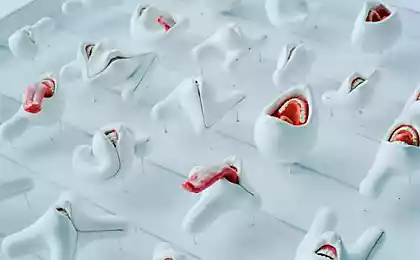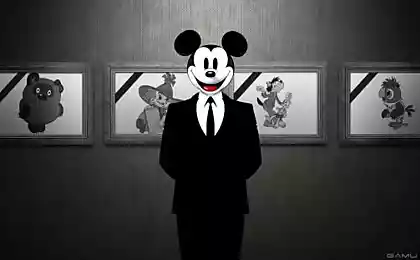1350
In pursuit of creativity
Is it to be successful, you have to be a little crazy?
According to Harvard psychologist Shelley Carson, eccentric people can be more creative than ordinary people due to the so-called "cognitive disinhibition." Creative people are different in that almost do not filter their thoughts and actions - it allows them to do things that go beyond normal behavior. The psychologist also suggests that the presence of a weaker filter is directly related to mental illness - and creativity.
However, the strange habits of successful people have their own advantages. We offer you to meet them.
< Yoshiro Nakamatsu practiced oxygen starvation of the brain to generate new ideas
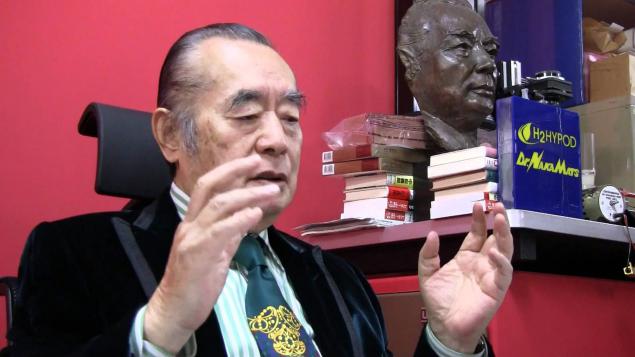
In its 85 years Nakamatsu is one of the greatest Japanese inventors. For his whole life he has patented more than 3,300 inventions, including computer diskette. His father called karaoke pump soy sauce, taxi meter and electronic watches.
To reinforce his ingenuity, he regularly swims ... and almost drowns himself.
"In order to ensure that oxygen starvation of the brain, you have to dive in and allow the water pressure to deprive the brain of blood. For half a second before his death, I see his invention. " Then, the Japanese inventor puts his idea into a notebook and underwater swims back to the surface.
< Jonathan Franzen works blindfolded to focus
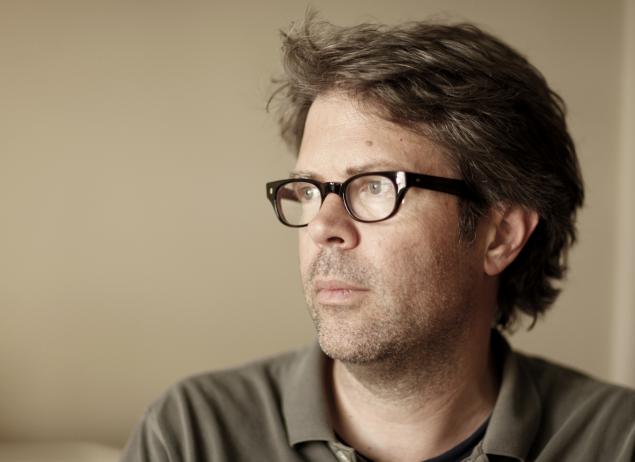
Not to be distracted and write their books, the American novelist comes not only from all social networks, but also blocks all sensory stimuli. As reported by The New York Times, to focus, Franzen puts earplugs, headphones and blindfolded. A print it apparently helps blind typing.
< Musical ideas attended by Ludwig van Beethoven in the bathroom
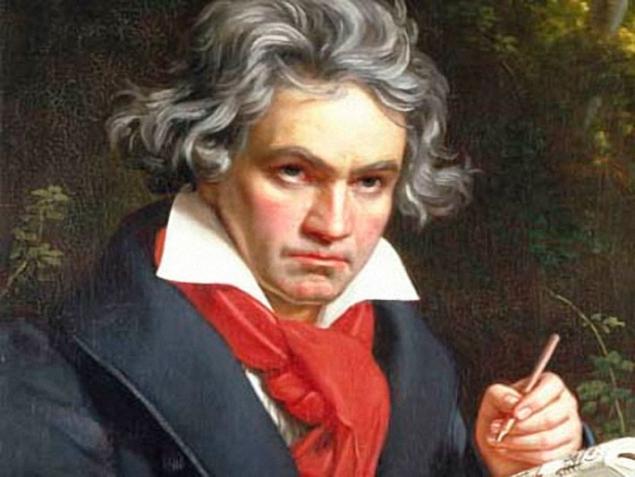
Deafness did not prevent Beethoven to become one of the world's greatest composers and create his famous "Moonlight Sonata».
A bathroom for Beethoven was part of the workflow. His pupil Anton Schindler recalled that "the composer was standing in front sink and poured their hands with water, while moaning under his breath, and sometimes belting».
Then he walked around the room, rolling his eyes and making notes along the way, and then continued to pour water and sing.
"It was a moment of deep meditation - told Schindler - which no one could prevent».
< When Thomas Edison was at his best, he refused to go to bed
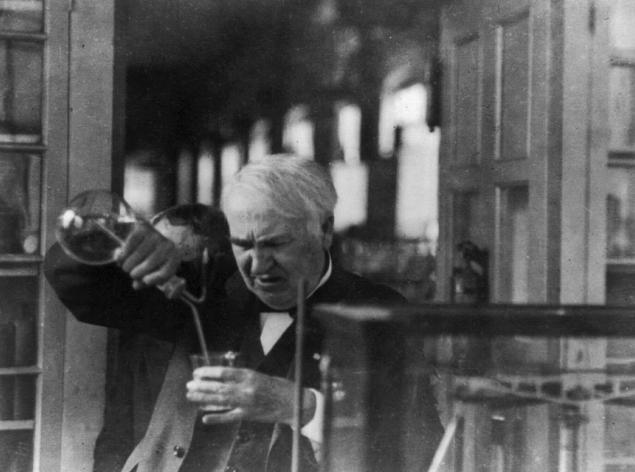
The famous inventor tried to sleep as little as possible - just three hours per day. He believed the dream "a relic of the past human cave" so devoted work 72 hours. Such a sleepless marathon spodvignul Edison for the invention of the phonograph, alkaline battery, light bulb and other 1 093 patents.
"People are losing sleep as a" disaster. " Would be better if they called it a waste of time, vitality and opportunities "- wrote Edison.
< Marissa Mayer slept in the workplace to improve performance
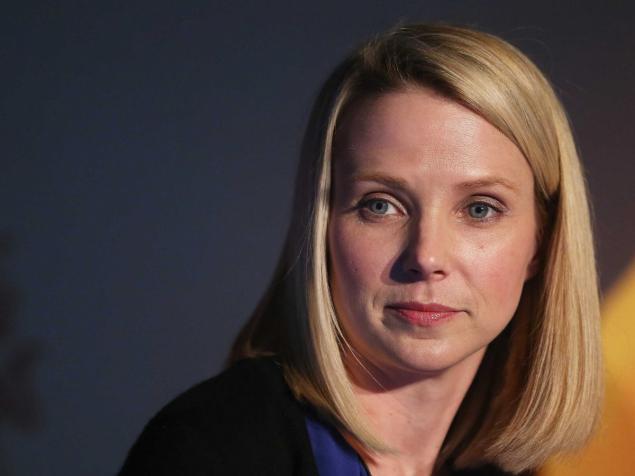
When Yahoo CEO worked for Google, all 130 hours a week, she dedicated her work. Meyer had to sleep right on your desktop, as she had to do a lot of hard work.
To avoid exhaustion and overload, Marissa Mayer takes a week's vacation time in four months.
< Charles Dickens train your brain by solving puzzles dead
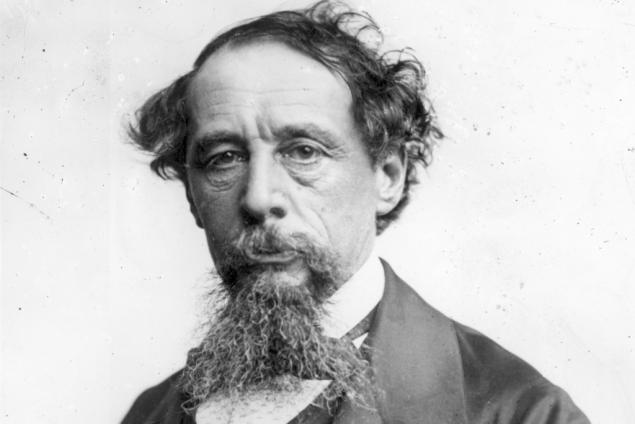
In between writing novels, Dickens loved to visit Paris morgue examining corpses, watching the showdown, reading the obituaries and trying to mentally unravel serial crimes. It was said that as a writer trained their critical thinking, which was necessary for him to work on his compositions.
< Maya Angelou was locked in a hotel room to write his best works
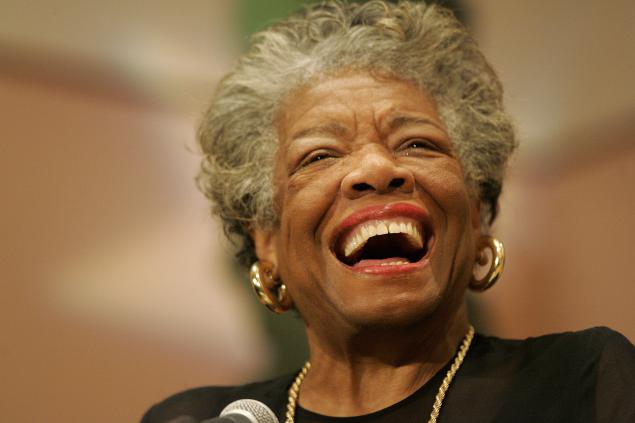
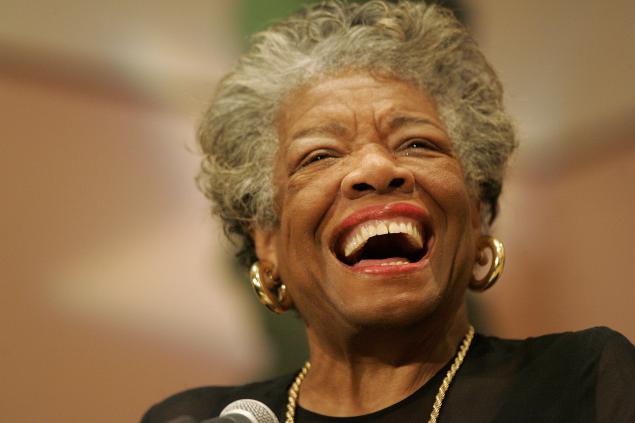
Say that Maya Angelou is one of the most prolific American writers, then say nothing. For 50 years, she has dedicated writing, there have been many autobiographies, books of poetry, movies, and television shows. The writer was awarded the Presidential Medal of Freedom - the highest award for US civilians.
The secret of its successful writing career - a tiny room where Maya from 7 am to 2 am draws his inspiration by using dictionaries, the Bible, a deck of cards and a bottle of sherry.
< Burres Skinner meticulously calculated the time and productivity
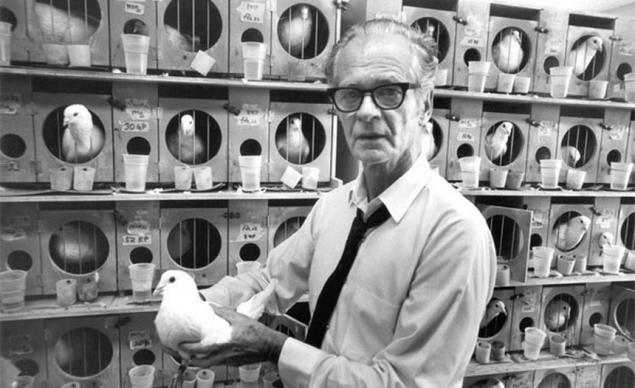
American psychologist, founder of the school of behaviorism, B. F. Skinner believed that all of our actions can be measured. He begins and ends his day at the alarm clock, carefully noting the number of hours spent and the written words on the chart. Every 12 hours Skinners exhibited a point on the graph that shows its total productivity. Psychologist observed this schedule every day, including weekends and holidays, until the last days of his life.
< Francis Bacon helped create a hangover
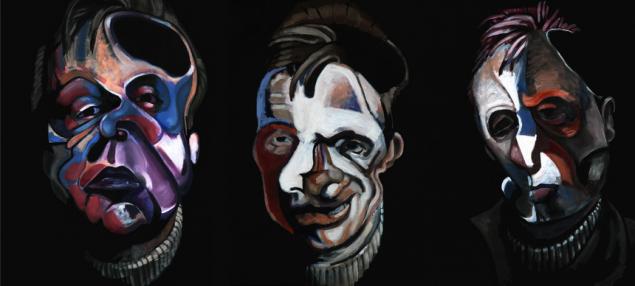
English expressionist painter led the high life: drinking wine and beer in bars and clubs was his daily occupation. This "no easy" life helps the creative process.
"I love working with a hangover - said Bacon, - because I was full of energy, and I think very clear».
source Your text to link ...
According to Harvard psychologist Shelley Carson, eccentric people can be more creative than ordinary people due to the so-called "cognitive disinhibition." Creative people are different in that almost do not filter their thoughts and actions - it allows them to do things that go beyond normal behavior. The psychologist also suggests that the presence of a weaker filter is directly related to mental illness - and creativity.
However, the strange habits of successful people have their own advantages. We offer you to meet them.
< Yoshiro Nakamatsu practiced oxygen starvation of the brain to generate new ideas

In its 85 years Nakamatsu is one of the greatest Japanese inventors. For his whole life he has patented more than 3,300 inventions, including computer diskette. His father called karaoke pump soy sauce, taxi meter and electronic watches.
To reinforce his ingenuity, he regularly swims ... and almost drowns himself.
"In order to ensure that oxygen starvation of the brain, you have to dive in and allow the water pressure to deprive the brain of blood. For half a second before his death, I see his invention. " Then, the Japanese inventor puts his idea into a notebook and underwater swims back to the surface.
< Jonathan Franzen works blindfolded to focus

Not to be distracted and write their books, the American novelist comes not only from all social networks, but also blocks all sensory stimuli. As reported by The New York Times, to focus, Franzen puts earplugs, headphones and blindfolded. A print it apparently helps blind typing.
< Musical ideas attended by Ludwig van Beethoven in the bathroom

Deafness did not prevent Beethoven to become one of the world's greatest composers and create his famous "Moonlight Sonata».
A bathroom for Beethoven was part of the workflow. His pupil Anton Schindler recalled that "the composer was standing in front sink and poured their hands with water, while moaning under his breath, and sometimes belting».
Then he walked around the room, rolling his eyes and making notes along the way, and then continued to pour water and sing.
"It was a moment of deep meditation - told Schindler - which no one could prevent».
< When Thomas Edison was at his best, he refused to go to bed

The famous inventor tried to sleep as little as possible - just three hours per day. He believed the dream "a relic of the past human cave" so devoted work 72 hours. Such a sleepless marathon spodvignul Edison for the invention of the phonograph, alkaline battery, light bulb and other 1 093 patents.
"People are losing sleep as a" disaster. " Would be better if they called it a waste of time, vitality and opportunities "- wrote Edison.
< Marissa Mayer slept in the workplace to improve performance

When Yahoo CEO worked for Google, all 130 hours a week, she dedicated her work. Meyer had to sleep right on your desktop, as she had to do a lot of hard work.
To avoid exhaustion and overload, Marissa Mayer takes a week's vacation time in four months.
< Charles Dickens train your brain by solving puzzles dead

In between writing novels, Dickens loved to visit Paris morgue examining corpses, watching the showdown, reading the obituaries and trying to mentally unravel serial crimes. It was said that as a writer trained their critical thinking, which was necessary for him to work on his compositions.
< Maya Angelou was locked in a hotel room to write his best works


Say that Maya Angelou is one of the most prolific American writers, then say nothing. For 50 years, she has dedicated writing, there have been many autobiographies, books of poetry, movies, and television shows. The writer was awarded the Presidential Medal of Freedom - the highest award for US civilians.
The secret of its successful writing career - a tiny room where Maya from 7 am to 2 am draws his inspiration by using dictionaries, the Bible, a deck of cards and a bottle of sherry.
< Burres Skinner meticulously calculated the time and productivity

American psychologist, founder of the school of behaviorism, B. F. Skinner believed that all of our actions can be measured. He begins and ends his day at the alarm clock, carefully noting the number of hours spent and the written words on the chart. Every 12 hours Skinners exhibited a point on the graph that shows its total productivity. Psychologist observed this schedule every day, including weekends and holidays, until the last days of his life.
< Francis Bacon helped create a hangover

English expressionist painter led the high life: drinking wine and beer in bars and clubs was his daily occupation. This "no easy" life helps the creative process.
"I love working with a hangover - said Bacon, - because I was full of energy, and I think very clear».
source Your text to link ...



